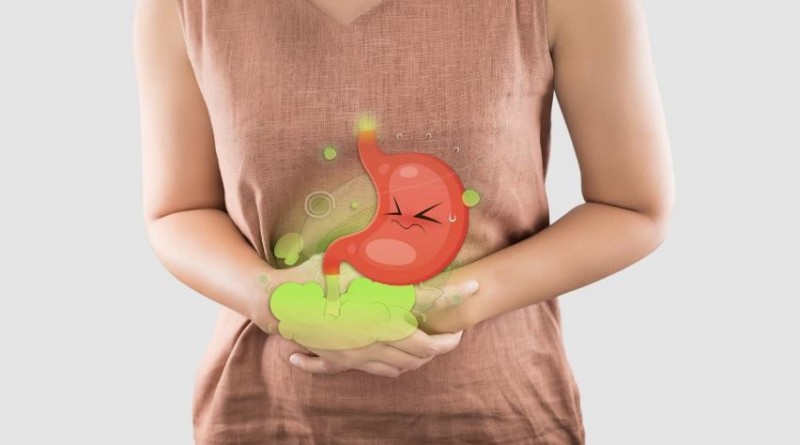
Bloating can occur due to various reasons, such as lifestyle discrepancies, hormonal imbalances, consumption of acidic or spicy foods, water retention in the stomach, or constipation. Additionally, excessive medication intake can also lead to gas or bloating issues. Identifying the right symptoms is crucial to finding relief. Generally, bloating is caused by the accumulation of gas in the stomach. According to experts, the problem of bloating is often associated with the consumption of fried and spicy foods. Dealing with bloating is essential as it can cause daily discomfort, making the stomach feel full, suppressing hunger, and hindering the enjoyment of meals. Let's explore expert-recommended strategies to alleviate bloating.
1. Exercise Regularly:
Physical activity is crucial for maintaining overall health, and it plays a significant role in preventing and alleviating bloating. When we consume food, our bodies need to actively digest it for proper nutrient absorption and waste elimination. Regular exercise, even if it's moderate, aids in stimulating the digestive process.
Digestive Benefits of Exercise:
Enhanced Peristalsis: Exercise stimulates the contraction of muscles in the digestive tract, promoting peristalsis—the wavelike movements that push food through the digestive system.
Improved Blood Circulation: Physical activity increases blood flow to various organs, including the digestive organs. Improved circulation ensures that the digestive system receives an adequate supply of oxygen and nutrients.
Reduced Constipation: Regular exercise helps prevent and alleviate constipation, a common cause of bloating. It promotes bowel regularity by speeding up the movement of food through the intestines.
Regulated Gut Microbiota: Exercise has been linked to a healthier balance of gut bacteria, which plays a crucial role in digestion and overall gut health.
Exercise Recommendations:
It's not necessary to engage in intense workouts; even simple activities like walking, cycling, or light aerobics can make a significant difference. Aim for at least 30 minutes of moderate exercise most days of the week.
2. Dietary Awareness:
The food we consume directly impacts our digestive health, and being mindful of our diet is essential for preventing bloating issues.
Common Culprits for Bloating:
Gas-Producing Foods: Certain foods, such as beans, lentils, broccoli, cabbage, and carbonated beverages, can produce gas in the digestive system, leading to bloating.
High-Fat Foods: Foods rich in saturated fats can slow down digestion, causing a feeling of fullness and discomfort.
Artificial Sweeteners: Some people may experience bloating due to the consumption of artificial sweeteners found in diet sodas and sugar-free products.
Tips for Dietary Management:
Fiber-Rich Diet: Include fiber-rich foods like fruits, vegetables, and whole grains in your diet. Fiber aids in digestion and helps prevent constipation.
Hydration: Drink an adequate amount of water throughout the day. Water supports digestion and helps prevent water retention in the stomach.
Limit Gas-Producing Foods: While nutrient-dense, some foods can cause gas. Moderation is key, and identifying specific triggers can be helpful.
3. Yoga Asanas:
Yoga, an ancient practice that combines physical postures, breath control, and meditation, offers various poses (asanas) that can aid in relieving bloating and improving overall digestive health.
Relevant Yoga Asanas:
Balasana (Child's Pose): This gentle forward bend compresses the abdomen, promoting the release of gas and tension.
Pavanmuktasana (Wind-Relieving Pose): This posture involves lying on the back and hugging the knees to the chest, aiding in the release of trapped gas.
Agnistambhasana (Fire Log Pose): This asana stretches and opens the hips, promoting digestive health.
Breath Awareness (Pranayama):
Deep Belly Breathing: Diaphragmatic breathing helps massage the internal organs and stimulates digestion, reducing bloating.
Apanasana Breath: Focused breathing in coordination with leg movements can alleviate gas and bloating.
4. Ayurvedic Remedies:
Ayurveda, the traditional system of medicine in India, offers natural remedies that can be effective in relieving bloating.
Herbal Infusions:
Coriander, Cumin, and Fennel Water: Combining these seeds into a herbal infusion can have carminative properties, aiding in digestion and reducing bloating.
Digestive Herbal Supplements:
Triphala: An Ayurvedic herbal formula comprising three fruits, Triphala promotes digestive health and can be beneficial for alleviating bloating.
Ayurvedic Lifestyle Tips:
Mindful Eating: Ayurveda emphasizes the importance of mindful eating, encouraging individuals to savor each bite and eat in a calm environment.
Balanced Doshas: According to Ayurveda, imbalances in doshas (Vata, Pitta, Kapha) can contribute to digestive issues. Ayurvedic practices aim to balance these doshas for overall well-being.
5. Walking After Meals:
Postprandial walks, or walks after meals, have been recognized as a simple yet effective practice to enhance digestion and prevent bloating.
Post-Meal Walking Benefits:
Accelerated Digestion: Walking increases the rate of digestion by promoting the movement of food through the digestive tract.
Blood Sugar Regulation: Post-meal walks help regulate blood sugar levels, preventing spikes and crashes that can impact digestion.
Reduced Bloating: The physical activity of walking stimulates the abdominal muscles and reduces the likelihood of gas buildup.
Tips for Effective Post-Meal Walking:
Timing: Aim for a 15-20 minute walk approximately 30 minutes after finishing a meal.
Pace: A moderate-paced walk is sufficient; there's no need for vigorous exercise.
Consistency: Making post-meal walks a consistent habit can contribute to long-term digestive health.
Incorporating these holistic approaches into one's lifestyle can provide comprehensive relief from bloating issues. Whether through regular exercise, dietary modifications, yoga, Ayurvedic remedies, or post-meal walks, individuals have a range of options to choose from based on their preferences and needs. Adopting a holistic approach to digestive health not only alleviates bloating but also promotes overall well-being.
Revitalize Your Mind and Body with Simple Three Yoga Exercises
Know The Surprising Health Benefits of Sleeping Without a Pillow
Consumption of this tasty dairy product will reduce cholesterol and reduce the risk of heart attack